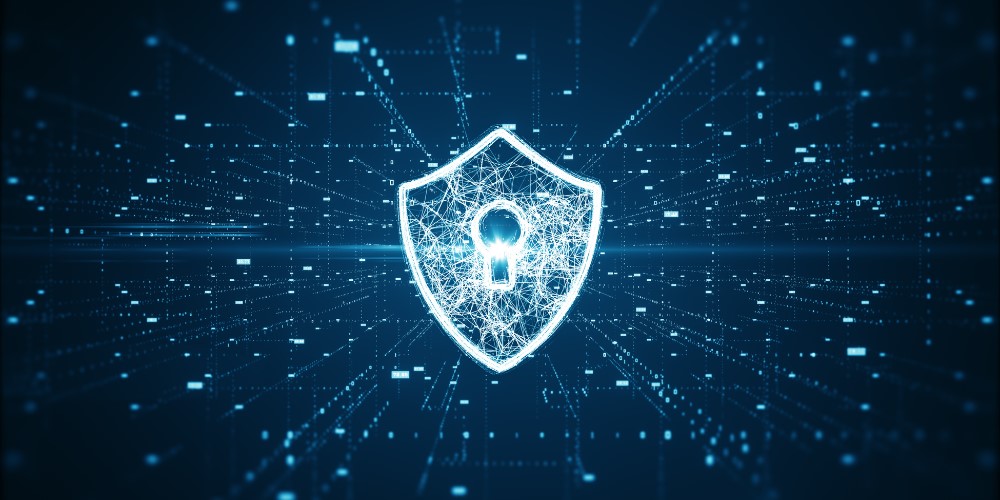Protecting Your Brand: How VAPT Safeguards Reputation and Trust

A company’s reputation is one of its most valuable assets. A single data breach can irreparably damage trust and tarnish the brand’s image, which can lead to lost customers and revenue. In today’s digital landscape, where cyber-attacks are becoming increasingly prevalent, businesses must take proactive measures to safeguard their reputation and protect their customers’ trust.
One of the case studies explored in the 2022 Singapore Cyber Landscape report is that of a Singapore-based law firm with 15 employees that suffered a business email compromise (BEC). The threat actor impersonated the firm and sent out 2,000 phishing emails to defraud customers into providing details like banking credentials, which resulted in financial losses amounting to more than S$100,000. Recapping their experience, one of the law firm’s partners summarised two key learnings from the incident:
First, a cybersecurity compromise affects our clients. We rarely consider cybersecurity as a duty of care to our clients who entrust us with keeping their privileged information safe. This incident has shown us that “it will never happen to me” is a myth!
“Second, the reputational cost of cybersecurity breaches is real. Following this incident, several major clients switched law firms, resulting in a serious loss of revenue. They simply did not have faith that we were doing enough for our cybersecurity and did not want to risk any potential compromise or data leak. We knew that we not only had to put the necessary cybersecurity measures in place, but we also restored our clients’ faith and confidence in our cybersecurity.”
Today we present Part 3 of our 5-part blog series on vulnerability and penetration testing (VAPT): we discuss how VAPT services help protect your brand reputation and explore tactics to mitigate risks and strengthen recovery from cyber-attacks.
1. Understanding the Impact of Data Breaches on Reputation
A data breach has consequences that go beyond financial losses. Let’s discuss how it affects customers and stakeholders emotionally and psychologically, and how it impacts a company’s reputation:
1. Loss of trust: When a company fails to protect customer data and privacy, trust is lost. This loss of trust could have significant consequences for the company. Customers could feel betrayed and choose to switch to competitors who prioritise data security and privacy. Customers could refuse to do business with the affected company altogether, resulting in a potential loss of revenue and market share. Rebuilding trust after a data breach could be a challenging and time-consuming process.
2. Brand damage: Data breaches create negative publicity, which could severely damage a brand’s image and reputation. The news of a data breach could spread quickly, leading to widespread public scrutiny and criticism. For smaller businesses, the damage caused by a data breach could be particularly detrimental, as they could lack the resources and brand recognition to withstand the negative impact. The tarnished reputation could also lead to a potential loss of competitive advantage, making it harder for the company to attract new customers and retain existing ones.
3. Legal consequences: Non-compliance with data protection laws could have severe legal ramifications for a company. Data breaches often result in investigations by regulatory authorities, which could lead to legal action, penalties, fines, and even lawsuits. These legal consequences could further harm a company’s reputation and financial stability. Moreover, the costs associated with legal defence and potential settlements could be substantial, putting additional strain on the company’s resources.
4. Long-term impact: Data breaches could have long-lasting effects on a company’s reputation, even after the initial breach is resolved. Customers could hesitate to trust the company again, fearing that their personal information could be compromised in the future. This lingering distrust could make it challenging for the company to regain the loyalty and confidence of its customer base. Stakeholders, such as investors and business partners, could view the company as unreliable and untrustworthy, impacting future collaborations and investments. The long-term impact of a data breach could hinder the company’s growth and success in the years to come.
2. Are small and medium-sized businesses more susceptible to reputational damage from cyber-attacks?
Small and medium-sized businesses (SMBs) are increasingly at risk of cyber-attacks due to limited resources and security expertise. Unlike larger corporations, SMBs often have restricted cybersecurity budgets, making them attractive targets for hackers. Additionally, they may lack the necessary IT staff or knowledge to effectively secure their networks and systems. This creates opportunities for cybercriminals to exploit vulnerabilities and access sensitive information.
SMBs are increasingly relying on digital platforms and technologies for their operations. This expands their vulnerability to cyber attacks, as hackers find more opportunities to infiltrate their systems. Cybercriminals could also view SMBs as gateways to larger organisations they do business with, making them attractive targets. And SMBs’ interconnectedness with supply chains and third-party vendors further increases their risk of reputational damage if these partners are compromised.
SMBs may not have the same brand recognition and customer loyalty as larger corporations. As a result, a single negative incident like a data breach or cyber-attack can have a significant impact on their reputation and cause customers to lose trust in their brand. Recovering from reputational damage can be challenging, leading to long-term consequences for their business success. That’s why implementing strong cybersecurity measures is crucial to protect against potential attacks.
As the world becomes increasingly interconnected and reliant on technology, the potential for cyber attacks only continues to grow. Businesses of all sizes must stay up-to-date with the latest security protocols and regularly review and strengthen their cybersecurity strategies to prevent potential breaches. Failure to do so not only puts customers at risk but also exposes the company to potential legal and financial consequences.
3. What is cyber resilience?
Cyber resilience is the ability of an organisation to withstand and recover from cyber attacks while continuing to operate effectively. It goes beyond just having strong cybersecurity measures in place – it includes incident response plans, business continuity strategies, and employee awareness training, among other approaches. A cyber resilient organisation can quickly detect, respond to, and recover from cyber incidents without significant disruption to its business operations or reputation.
With regards to a brand, cyber resilience is crucial as it ensures the protection of customer data and business operations. A strong cyber resilience framework can help prevent data breaches from occurring in the first place, minimising the risk of reputational damage and financial losses. In the event of a data breach, a company with strong cyber resilience will be better equipped to mitigate the impact and quickly restore trust with stakeholders. This helps maintain a positive public perception and preserve the brand’s reputation.
Cyber resilience and brand resilience are closely related. A cyber attack can not only harm a company’s financial standing but also damage its reputation and erode customer trust. This ultimately affects the strength and resilience of a brand. On the other hand, a strong brand that has built up trust with its stakeholders may be able to weather a cyber incident more successfully due to the established reputation and positive perception. This highlights the importance of not only having strong cybersecurity measures in place but also building a solid brand resilience strategy.
Some key factors that contribute to both cyber resilience and brand resilience include effective communication, transparency, and timely response. When a cyber attack occurs, how the company communicates with its stakeholders can greatly impact the overall damage to the brand’s reputation. A transparent and timely response can help mitigate the damage, restore trust, and show a company’s commitment to protecting its customers’ data.
4. How do VAPT services help?
Vulnerability Assessment and Penetration Testing (VAPT) services are an important part of an organisation’s cyber resilience. VAPT services involve comprehensive testing and analysis to identify vulnerabilities in a company’s network, systems, and applications. Finding weaknesses before they can be exploited helps organisations strengthen their defences and reduce the risk of data breaches.
Penetration testing, also known as ‘pen testing’, simulates real-world cyber attacks to evaluate a company’s security measures. This includes attempting to exploit vulnerabilities, gaining unauthorised access, and using social engineering techniques. Regular pen tests help identify weaknesses and address them before malicious actors can take advantage.
In addition to identifying vulnerabilities, VAPT services provide recommendations for remediation and ongoing monitoring. This includes implementing patches, updating security protocols, and conducting regular vulnerability scans to ensure system security. With continuous monitoring and remediation, companies can stay ahead of emerging threats and maintain a robust defence against cyber attacks.
Engaging VAPT services is a proactive approach to safeguarding reputation and brand integrity. It demonstrates a commitment to protecting sensitive data and ensuring the trust of stakeholders. Regularly conducting VAPT assessments helps organisations showcase their dedication to maintaining strong cyber resilience and staying ahead of potential threats. This not only helps preserve public perception but also builds brand reputation as a trusted and secure company.
5. Restoring reputation after a data breach
In the unfortunate event of a data breach, VAPT findings can guide business to effectively address the issue, restore trust and rebuild their reputation with stakeholders and customers. The prompt and effective handling of a data breach can minimise the negative impact on an organisation’s reputation.
In the aftermath of a data breach, companies need to communicate transparently and proactively with affected parties. This includes informing customers, employees, and stakeholders about the breach, its potential impact, and what steps are being taken to mitigate any damage. This not only helps rebuild trust but also showcases a commitment to taking responsibility and addressing the issue head-on.
The following steps can help businesses recover from a data breach:
1. Transparency: Immediately inform customers and stakeholders about the data breach and provide regular updates on the measures being taken to address it. Being transparent shows accountability and helps regain trust.
2. Remediation: Take prompt action to fix any vulnerabilities or weaknesses identified during the VAPT assessment. This helps prevent future data breaches and demonstrates a commitment to cybersecurity.
3. Communication: Ensure clear and concise communication with affected customers and stakeholders. Provide them with steps they can take to protect their personal information and offer any necessary support.
4. Reassurance: Reassure customers and stakeholders that their personal information is now secure through regular updates on the status of the breach resolution and any additional measures being implemented.
5. Learning from the breach: Conduct a thorough review of the data breach to identify weaknesses in the current cybersecurity strategy and make necessary improvements to prevent future incidents.
6. VAPT is an investment in brand resilience.
Investing in VAPT services showcases commitment to customer data protection. Prioritising proactive cybersecurity measures means that the business is demonstrating their dedication to safeguarding customer trust and loyalty.
This can have a positive impact on a company’s reputation and brand resilience in several ways. Firstly, VAPT services are crucial for proactively mitigating risks by identifying potential security vulnerabilities before they can be exploited. This proactive approach reduces the risk of data breaches, helping businesses stay ahead of cybercriminals and minimise the negative impact on their reputation. Secondly, VAPT assessments ensure that businesses comply with industry regulations and data protection laws. This not only protects the company from legal consequences but also reassures customers that their data is handled securely.
Investing in VAPT services also helps lead to increased customer confidence. It demonstrates to customers that their sensitive information is safe and secure, which helps businesses reinforce customer trust and loyalty. This drives higher customer retention rates and strengthens the brand.
Furthermore, prioritising cybersecurity and data protection through VAPT services can differentiate businesses from their competitors in a competitive market. Showcasing their commitment to customer safety could help them stand out among their rivals.
VAPT services also help prevent financial losses associated with data breaches and cyber attacks by avoiding costly security incidents. This helps businesses maintain a strong financial standing, which further enhances their overall reputation.
7. Conclusion
In today’s digital age, businesses must prioritise cybersecurity to maintain a strong reputation and customer trust. VAPT services provide a key layer of defence against cyber threats and demonstrate a company’s commitment to protecting sensitive information. Businesses need to invest in VAPT services and continuously prioritise the security of their systems and data. With a strong focus on cybersecurity, companies can not only protect themselves but also build a loyal customer base that values trust and safety. Keep your company safe, secure, and reputable. Get in touch with an expert at MyRepublic today to find out how we can help you reinforce your security posture through VAPT services.



















